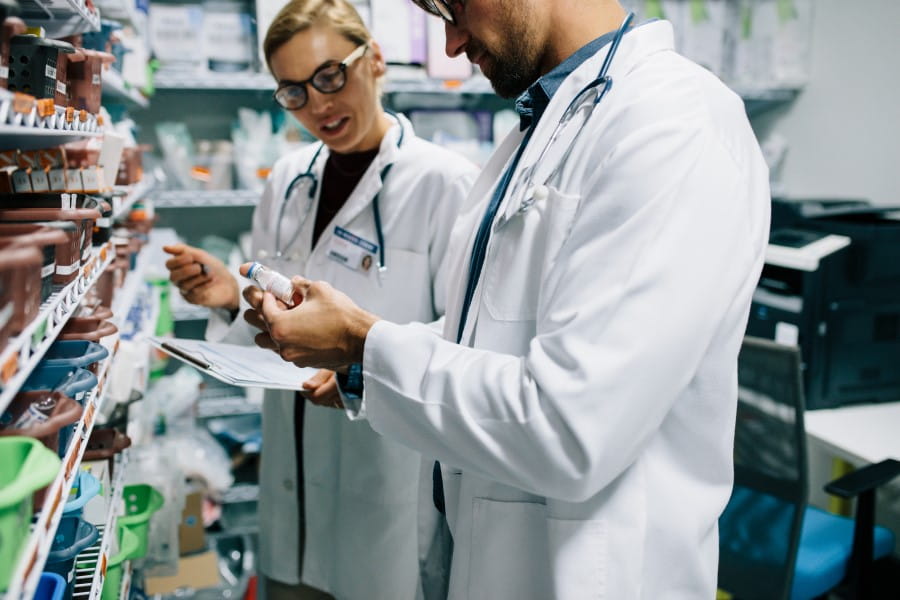
Geisinger Community Medical Center (Scranton) Pharmacy Residency
Expand your clinical expertise and improve your communication with patients with Geisinger’s Pharmacy Residency at a busy, diverse hospital in Scranton, Pa.
About us
A career in pharmacy is about so much more than dispensing drugs. You need a deep and evolving knowledge of a vast array of ever-changing medications and their myriad potential interactions — and the skills to communicate this knowledge to patients who trust you with their health. Beyond that, you may want to acquire the special tools needed to work in emergency and trauma care and other specialized clinical settings.
Geisinger’s Pharmacy Residency (PGYI) program will give you the skills you need. Our Pharmacy Residency builds on your Doctor of Pharmacy education, with the goal of preparing you for board certification and for postgraduate year-two Pharmacy Residency (PGY2) training.
Our goals are:
- To provide you with the training and experience to develop professional expertise as a health system pharmacy practitioner
- To cultivate you as a competent, innovative practitioner who’s ready to provide comprehensive pharmaceutical services across the continuum of care
- To train you to effectively research, analyze and communicate drug information
The PGY1 Pharmacy Residency at Geisinger Community Medical Center in Scranton, Pa., will help you develop every aspect of yourself as a pharmacist — your clinical skills, your professional goals and your personal growth. And from day one, you’ll be treated as a trusted, valued colleague on a pharmacy team that’s committed to delivering the highest possible quality of patient care. You’ll work with department members who have full-time practice and teaching responsibilities and serve as preceptors for the learning experiences.
As our pharmacy resident, you’ll be immersed in a rich and varied curriculum that includes:
- Learning experiences designed to develop your skills and competence in providing evidence-based, patient-centered medication therapy management with interdisciplinary teams
- A structure and areas of emphasis tailored to your knowledge, skills and career aspirations
- Elective learning experiences that allow you to pursue interests related to your career goals
- Opportunities to be involved in all pharmacy activities, including direct patient care, pharmacy consults, medical emergencies, and various projects and committees
- Teaching, research and other scholarly endeavors that will enhance your professional development
Geisinger has a strong tradition of research. As our PGY1 pharmacy resident, you’ll also be expected to take an active role in our research culture. Through this residency, you’ll become a lifelong learner who’s passionate about the latest research and innovations — and ready to contribute to them.
We hope you’ll apply to join us.
About Geisinger
Geisinger serves more than 1 million people in central and northeastern Pennsylvania. We’ve been nationally recognized for innovative practices in quality, delivery models such as ProvenCare® and the use of an award-winning electronic medical record, Epic®. Our physician-led system has about 24,000 employees, including nearly 1,700 physicians, 10 hospital campuses, two research centers and a health plan with more than half a million members, all of which boost our hometown economies by $7.1 billion annually.
Our home: Northeastern Pennsylvania
Northeastern Pennsylvania (NEPA) is a great place to live, with safe neighborhoods, an affordable cost of living and access to recreational activities. NEPA is close to New York City and Philadelphia, giving you access to major cities in just a few hours. Overall, our communities are a good bet for living a stress-free, healthy lifestyle. And more importantly, NEPA is a place where you can make a difference.
